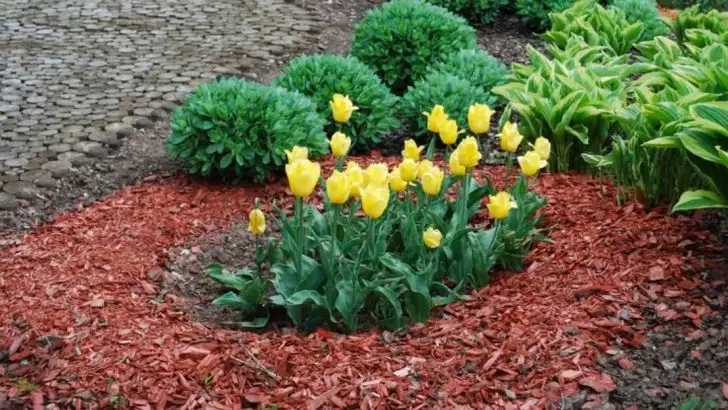Gardening doesn’t have to be a nonstop battle with weeds, watering, and constant maintenance. In fact, embracing a lazy gardening approach can lead to a healthier, more resilient garden with less effort. By choosing low-maintenance plants, improving soil naturally, and letting nature take its course, you can enjoy a thriving outdoor space without spending hours on upkeep.
Many traditional gardening habits actually work against nature rather than with it. Over-tilling, excessive watering, and constant fertilizing can disrupt soil health and make plants more dependent on human intervention. With smart planning and a more relaxed approach, you’ll find that your garden not only survives—but flourishes—with minimal work.
Minimal Watering Techniques
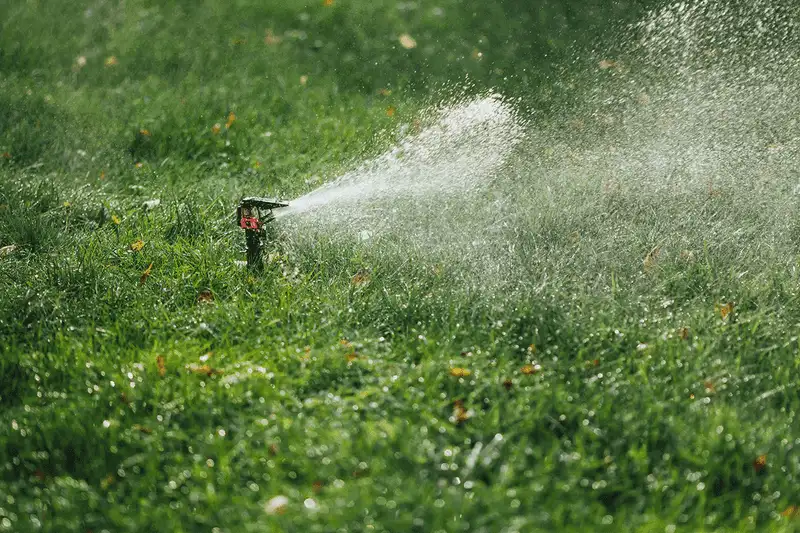
Forget the daily watering routine thanks to strategic planting that conserves moisture. Group plants with similar water needs to ensure each one thrives without constant attention. Use mulch generously to retain water and reduce evaporation, making your garden self-sufficient. Install rain barrels to collect rainwater for nourishing your plants naturally. This not only saves time but also cuts down on water bills. Picture your garden absorbing the rain’s bounty, flourishing with minimal human intervention. No more lugging hoses around; let nature do the heavy lifting. You’ll enjoy a thriving garden with a fraction of the effort.
Native Plant Selection
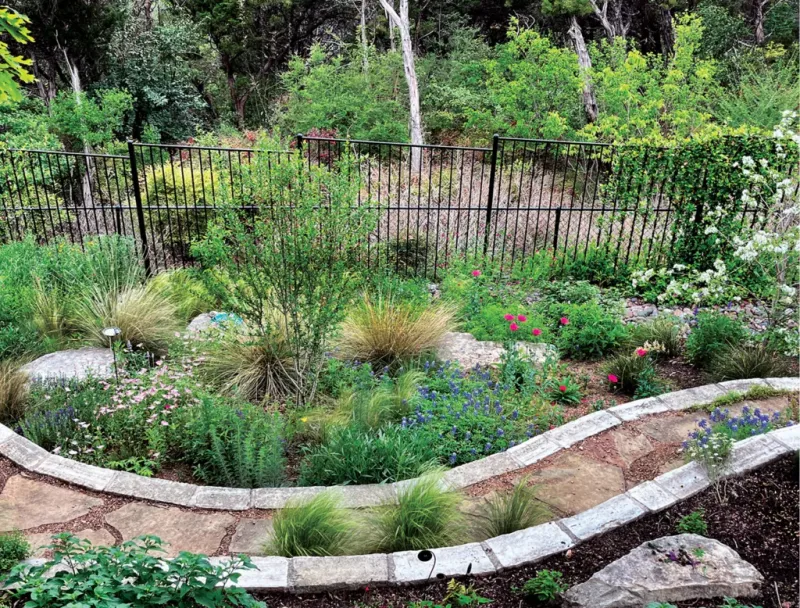
Opting for native plants is a brilliant lazy gardening tactic. These flora are perfectly adapted to the local climate, meaning less pampering is required. No more struggling with exotic plants that need constant care. Native species resist local pests and diseases, cutting down on the need for chemical interventions. Imagine a garden that thrives naturally, attracting local wildlife and pollinators. This approach doesn’t just make gardening easier; it enriches the local ecosystem. By choosing native plants, you’re investing in a self-sustaining garden that requires minimal upkeep yet offers maximum beauty.
Perennial Power
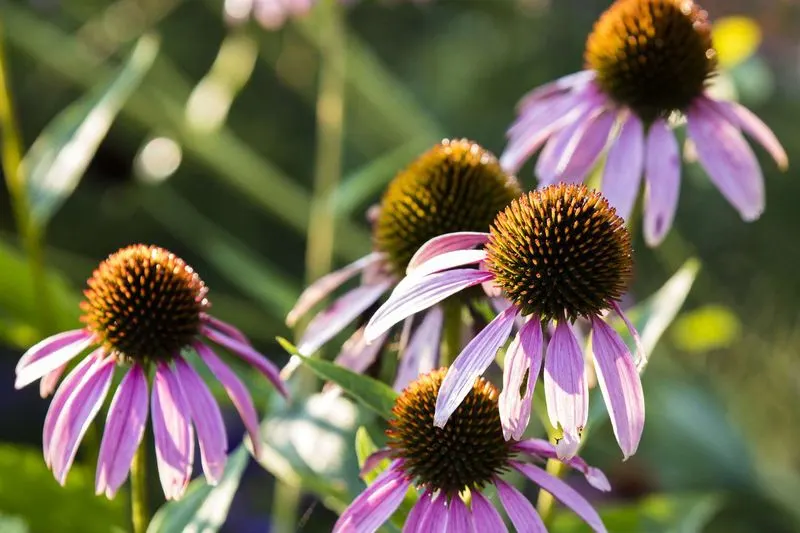
Perennials come back year after year, reducing the need for replanting. This means less work each spring as your garden matures and fills out over time. With an array of colors and textures, perennials provide consistent beauty with little effort. They establish themselves deeply, demanding less water and nutrients. Visualize a garden that blossoms anew each spring without needing to lift a finger. By planting perennials, you set the stage for a garden that practically takes care of itself, freeing you up to relax and enjoy the view. A perennial paradise awaits with minimal input.
Mulch Magic
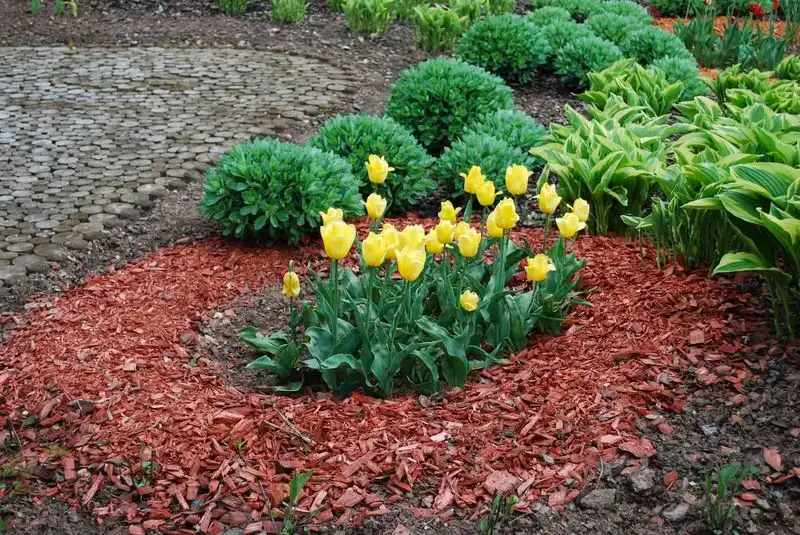
Mulch is a lazy gardener’s best friend. It suppresses weeds, retains moisture, and enriches the soil as it breaks down. This one-time seasonal task saves countless hours of weeding and watering. Imagine a garden where weeds struggle to take hold, allowing your plants to thrive undisturbed. Mulch also provides a neat, tidy appearance, improving your garden’s aesthetics with minimal input. As an added bonus, it protects plant roots from extreme temperatures. With a simple layer of mulch, your garden becomes a low-maintenance sanctuary, allowing you to spend more time enjoying your outdoor space.
Composting Ease
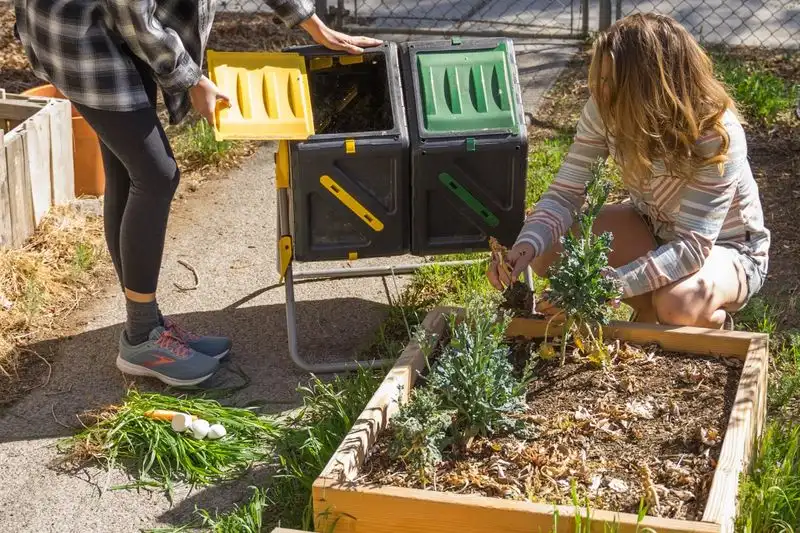
Composting turns kitchen scraps and yard waste into nutrient-rich soil amendment effortlessly. This reduces the need for store-bought fertilizers and enhances soil health naturally. Imagine turning your waste into a garden’s treasure without fuss. A compost bin quietly works its magic, transforming yesterday’s leftovers into tomorrow’s growth booster. It’s a simple setup with profound impacts on plant vitality. Composting reduces landfill waste while enriching your soil, ensuring your garden thrives. With minimal effort, you contribute to a greener planet and a more productive garden. Composting is the epitome of lazy gardening efficiency.
Self-Seeding Plants
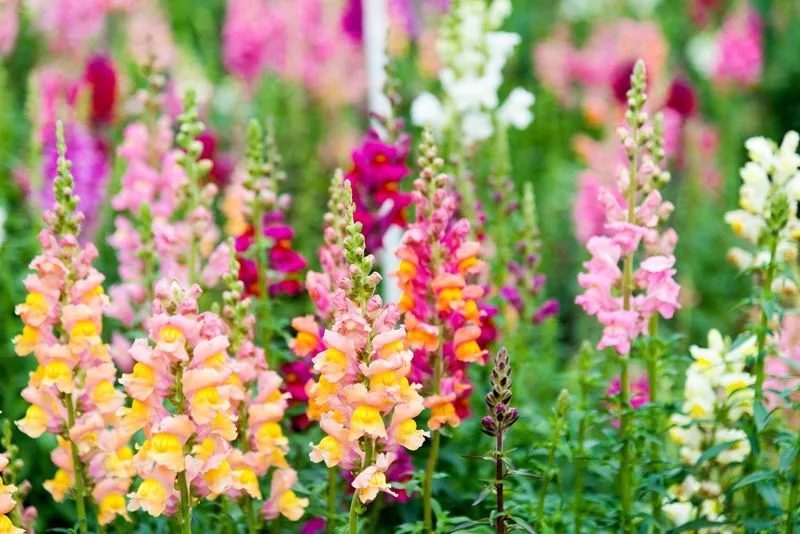
Let nature do the planting with self-seeding varieties that renew themselves annually. Choose plants like poppies and marigolds that scatter seeds, ensuring a fresh crop each season without lifting a finger. These plants fill your garden with vibrant colors and textures, all while you relax. Picture a garden that evolves naturally, providing visual interest with minimal intervention. Self-seeders reduce the need for new seeds and seedlings year after year. They bring surprise and delight, with each season offering new blooms as nature takes its course. Your garden becomes a dynamic canvas of continuous growth.
Wildlife-Friendly Gardens
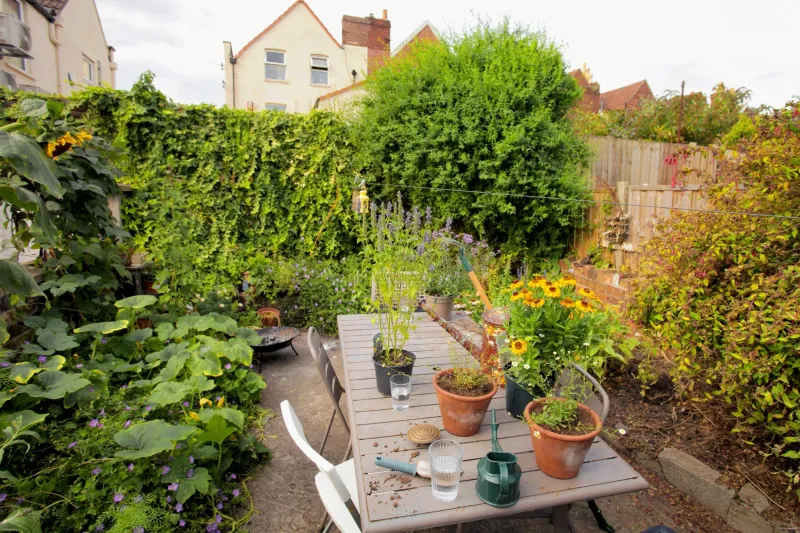
Transform your garden into a haven for local wildlife with minimal effort. Plant shrubs and flowers that provide food and habitat for birds, bees, and butterflies. Not only does this support biodiversity, but it also reduces pest populations naturally. Visualize a garden alive with the flutter of wings and buzzing of bees, all contributing to the ecological balance. A wildlife-friendly garden requires fewer pesticides and interventions, aligning perfectly with lazy gardening principles. Enjoy the sights and sounds of nature’s visitors, knowing your garden plays a vital role in supporting the local ecosystem.
Edible Landscaping
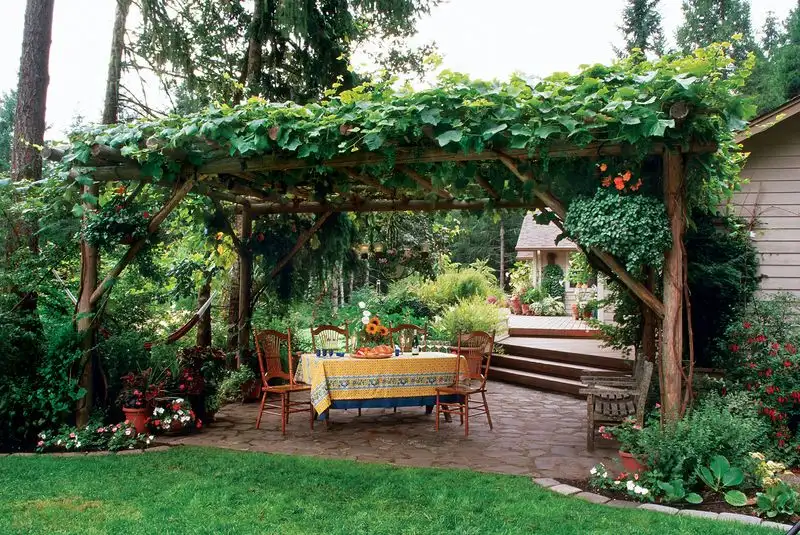
Combine beauty and utility in your garden with edible landscaping. Herbs, fruits, and vegetables blend seamlessly with ornamental plants, creating a space that’s both attractive and productive. Picture a garden where you can pick fresh produce for dinner while enjoying a visually appealing setting. This approach reduces the need for separate vegetable patches, simplifying your gardening efforts. Enjoy the satisfaction of growing your own food with minimal disruption to your garden’s aesthetics. Edible landscaping ensures every plant serves a purpose, contributing to a functional yet beautiful garden all season long.
Low-Maintenance Shrubs
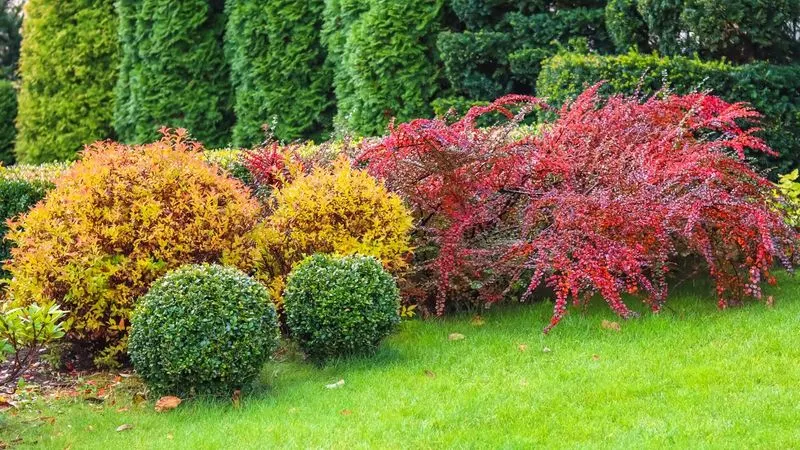
Incorporate shrubs that require minimal trimming and care for a garden that looks after itself. These plants offer structure and beauty without constant pruning or shaping. Imagine a garden that remains lush and full-bodied with little intervention. Low-maintenance shrubs provide year-round interest with their varied foliage and blooms. They form the backbone of your garden, reducing the need for seasonal replanting or detailed care. With these resilient plants, you get more time to relax and enjoy your garden’s natural beauty. It’s an easy and effective way to maintain a vibrant outdoor space.
Ground Cover Solutions
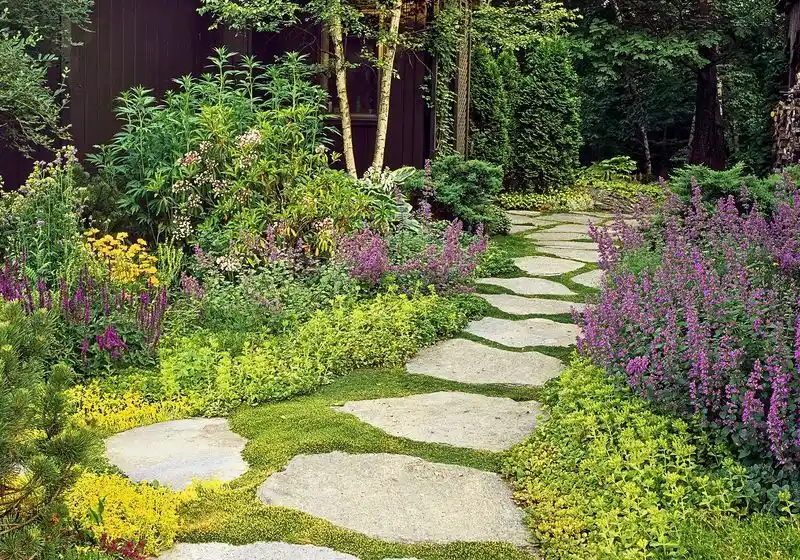
Replace high-maintenance lawns with ground covers that require little mowing and watering. These plants spread quickly, choking out weeds and adding texture to your garden. Imagine a lush carpet of greenery that requires next to no maintenance. Ground covers are perfect for filling in gaps, covering bare spots, and adding visual interest. They create a cohesive look while saving you time and effort. As they establish themselves, these plants reduce the need for weeding and mulching, aligning perfectly with a lazy gardening strategy. Your garden becomes a seamless, low-maintenance masterpiece.
Easy Pruning Practices
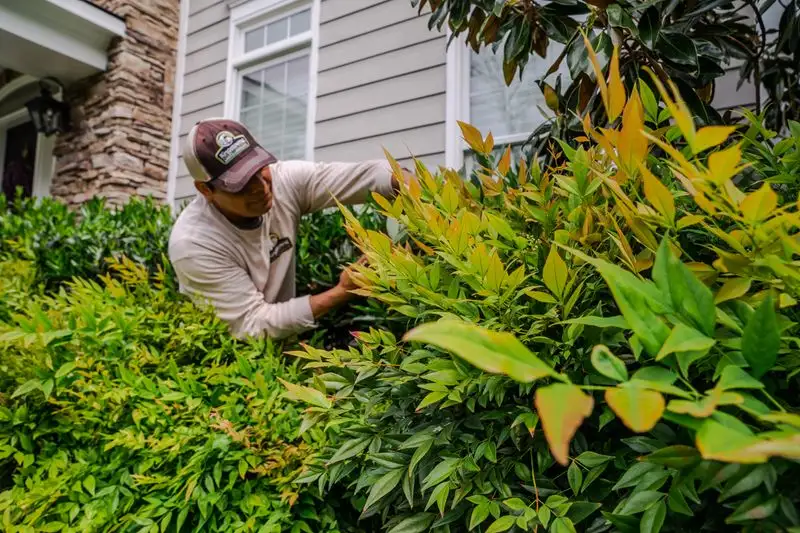
Forget tedious, time-consuming pruning schedules. By choosing the right plants and understanding their growth patterns, you can minimize pruning. Select shrubs and trees that fit your space naturally, avoiding constant reshaping. Imagine stepping back to admire a garden that looks tidy with minimal effort. Easy pruning practices save time and reduce stress, allowing you to enjoy your garden instead of managing it. With the right selections, your plants will maintain their shape and health naturally. This means less work for you and a more relaxed gardening experience overall.
No-Dig Gardening
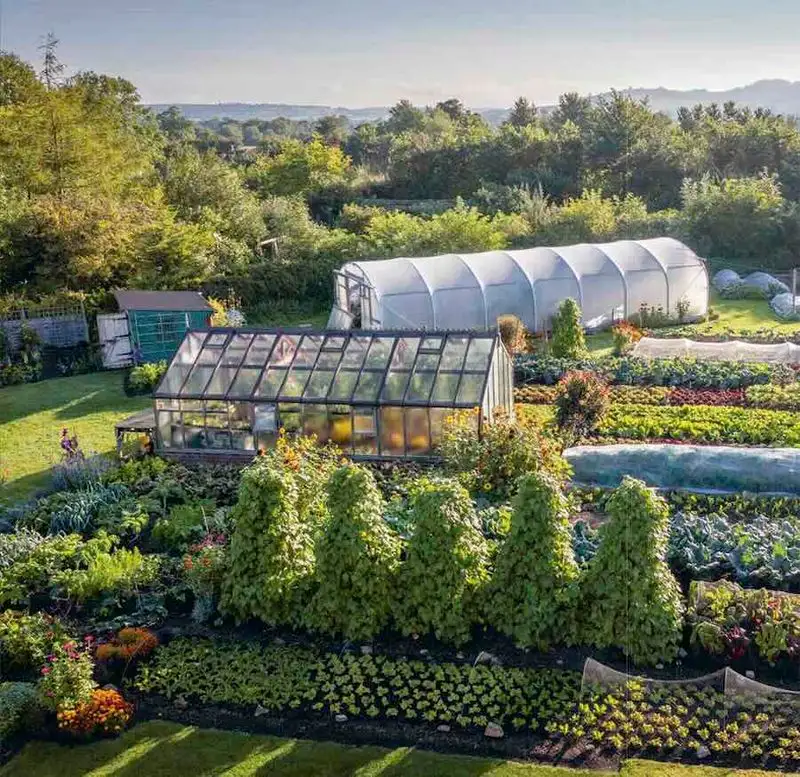
Eliminate the back-breaking task of digging with a no-dig garden. Layering organic matter on top of the soil enriches it without turning. This method improves soil structure and health naturally. Imagine a garden where nature does the heavy lifting, leaving you free to enjoy the results. No-dig gardening reduces soil erosion and compaction, promoting healthy root systems. It’s a kinder approach to the earth and your back. By letting microbes and earthworms do the hard work, you create a fertile garden bed with minimal physical effort. This is a truly sustainable gardening practice.
Effortless Weed Control

Say goodbye to constant weeding with strategic planting and ground covers. Dense plantings naturally suppress weeds, reducing the need for manual removal. Imagine a garden bed where weeds struggle to find a foothold. By using mulch and ground covers, you create an environment where desirable plants thrive and weeds falter. This approach saves time and energy, allowing you to enjoy your garden more and work less. Effortless weed control is all about smart planning and plant choices, embodying the lazy gardening philosophy. Your garden remains beautiful and low-maintenance year-round.
Slow-Release Fertilizers
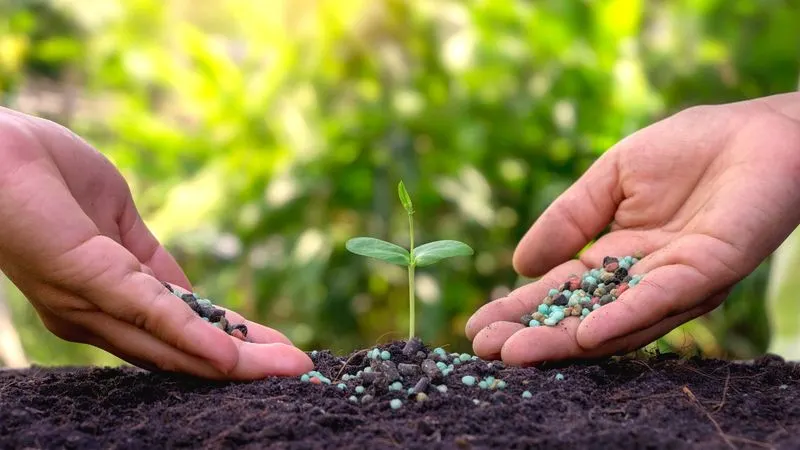
Use slow-release fertilizers to maintain plant health with minimal effort. These products provide nutrients over time, reducing the frequency of applications. Picture a garden where plants receive a steady diet without constant feeding. Slow-release fertilizers ensure your plants get what they need without daily attention. This method supports strong growth and vibrant blooms with less effort. It’s an efficient way to keep your garden in top shape while freeing up your time. Enjoy the benefits of healthy plants and a thriving garden, all while embracing a more relaxed approach to gardening.
Nature’s Pest Management
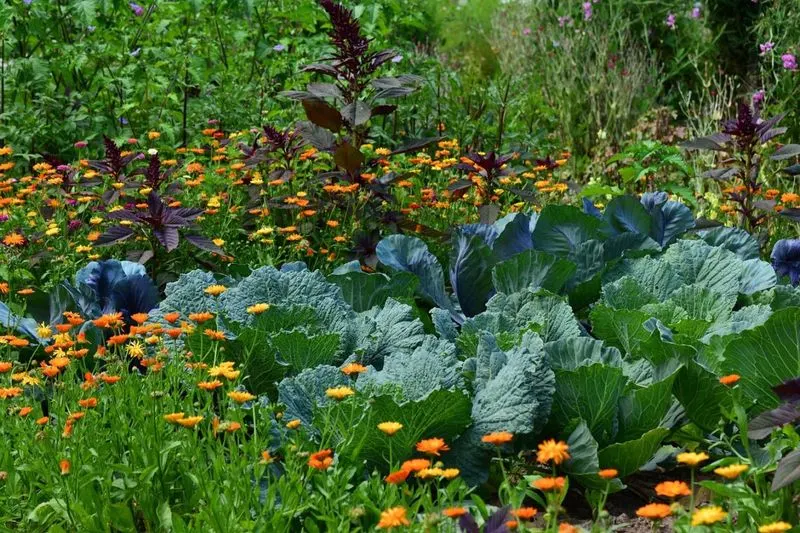
Utilize nature’s own systems to manage pests in your garden effortlessly. Encourage beneficial insects and birds that prey on common pests by planting diverse species. Visualize a garden teeming with life, where each creature plays a role in maintaining balance. This method reduces the need for chemical pesticides, aligning with a more eco-friendly gardening ethos. By fostering a diverse ecosystem, you allow natural pest control to flourish. It’s a seamless way to protect your plants and promote a healthier garden environment. Let nature take charge, reducing your workload and enhancing your garden’s vitality.

